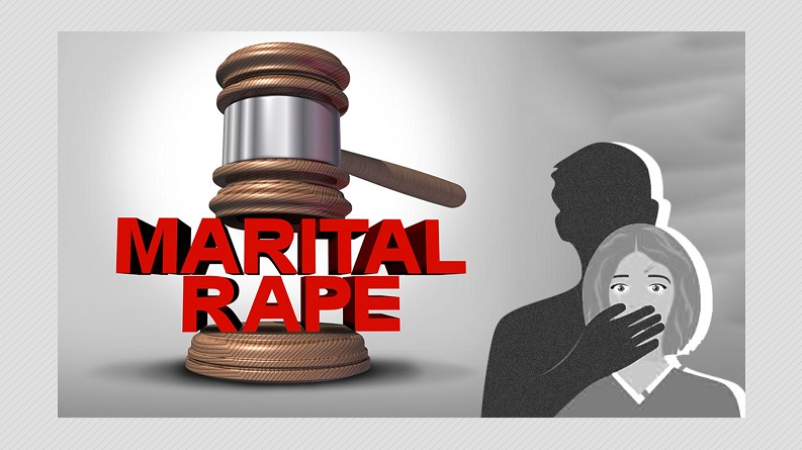"Breaking the Silence: Confronting Marital Rape in Relationships."

"Breaking the Silence: Confronting Marital Rape in Relationships."
Introduction Marital rape, defined as non-consensual sexual intercourse between spouses, is a pervasive form of gender-based violence that occurs within the confines of marriage or intimate relationships. Despite growing recognition of its prevalence and harmful effects, marital rape remains a largely taboo and underreported phenomenon, entrenched in social norms, cultural beliefs, and legal frameworks that perpetuate impunity and silence survivors. This essay explores the complexities surrounding marital rape, including its historical context, psychological impacts, legal frameworks, challenges in prosecution and prevention, and avenues for advocacy and reform. 1. Historical Context and Evolution Marital rape has deep historical roots, intertwined with patriarchal structures and societal norms that prioritize male authority and control within intimate relationships. Throughout much of history, marriage was often regarded as a form of ownership, where women were considered the property of their husbands and had few legal rights or protections. In many cultures, marital rape was not recognized as a crime, as the prevailing belief was that a woman's consent to marriage implied perpetual consent to sexual intercourse. The modern feminist movement has been instrumental in challenging these attitudes and advocating for the recognition of marital rape as a form of sexual violence and a violation of women's rights. Beginning in the late 20th century, feminist activists and scholars highlighted the inherent power imbalances within marriage and called for legal reforms to criminalize marital rape and provide survivors with avenues for justice and support. 2. Psychological Impacts The psychological impacts of marital rape can be devastating and long-lasting. Survivors may experience a range of emotional reactions, including fear, shame, guilt, anger, and betrayal. The trauma of marital rape can lead to symptoms of post-traumatic stress disorder (PTSD), depression, anxiety, and other mental health disorders. Survivors may also struggle with feelings of self-blame and worthlessness, as well as difficulties in trusting others and forming intimate relationships. Children who witness or experience marital rape within their households may suffer from emotional trauma, developmental delays, and behavioral problems. The toxic stress and instability resulting from exposure to domestic violence can have lifelong consequences for children's emotional well-being and social development, perpetuating cycles of violence and trauma across generations. 3. Legal Frameworks and Challenges Despite progress in recognizing marital rape as a human rights violation, legal frameworks for addressing and prosecuting this crime remain inconsistent and inadequate in many jurisdictions. Some countries still lack specific legislation criminalizing marital rape or have legal exemptions and marital immunity clauses that shield perpetrators from prosecution. Even where laws against marital rape exist, enforcement and prosecution can be challenging due to systemic barriers, including law enforcement bias, inadequate training of judicial personnel, and societal attitudes that minimize or dismiss survivors' experiences. Survivors of marital rape may face significant obstacles in seeking justice and protection. They may fear retaliation from their abusers, lack access to legal resources and support services, or encounter disbelief and victim-blaming attitudes from law enforcement and judicial authorities. Cultural norms, religious beliefs, and community pressure may further stigmatize survivors and discourage them from reporting marital rape or seeking help. 4. Intersectional Perspectives Marital rape intersects with multiple forms of oppression, including gender inequality, race, ethnicity, class, disability, and sexual orientation. Women from marginalized and vulnerable communities, such as women of color, indigenous women, migrant workers, LGBTQ+ individuals, and women with disabilities, may face intersecting forms of discrimination and violence within marital relationships. These intersecting forms of oppression can compound barriers to justice and support for survivors and perpetuate cycles of abuse and trauma. Intersectional approaches to addressing marital rape recognize the interconnected nature of oppression and privilege and center the experiences and needs of diverse survivor populations. These approaches aim to challenge systemic inequalities and barriers to justice, promote inclusive policies and interventions, and empower marginalized communities to access support and resources. 5. Prevention and Intervention Strategies Preventing marital rape requires multifaceted strategies that address underlying factors contributing to gender-based violence, promote gender equality, and challenge harmful attitudes and behaviors within intimate relationships and wider society. Education and awareness-raising campaigns can play a crucial role in challenging myths, stereotypes, and misconceptions surrounding marital rape, fostering consent culture, and promoting healthy relationships based on mutual respect and autonomy. Community-based interventions, such as bystander intervention programs, peer education initiatives, and survivor-centered support networks, can empower individuals to recognize and respond to signs of abuse, provide safe spaces for disclosure and healing, and challenge norms of silence and complicity surrounding marital rape. Comprehensive sexuality education, including topics on consent, boundaries, and healthy communication, can equip individuals with the knowledge and skills to navigate intimate relationships free from coercion and violence. 6. Advocacy and Reform Advocacy efforts to address marital rape encompass legal reforms, policy advocacy, survivor-led activism, and social mobilization campaigns aimed at challenging impunity, raising awareness, and promoting systemic change. Civil society organizations, women's rights groups, and grassroots movements play a crucial role in advocating for legislative reforms to criminalize marital rape, eliminate legal exemptions, and ensure survivor-centered responses within the criminal justice system. International advocacy platforms, such as the United Nations' 16 Days of Activism Against Gender-Based Violence campaign, provide opportunities for global solidarity and collective action to end marital rape and all forms of violence against women. Engaging with religious and community leaders, media outlets, and educational institutions can foster dialogue, challenge harmful norms, and promote positive social norms around consent, gender equality, and respectful relationships. Conclusion Marital rape is a pervasive form of gender-based violence that has profound and lasting impacts on survivors' physical, emotional, and psychological well-being. Addressing marital rape requires comprehensive, intersectional approaches that challenge systemic inequalities, promote gender equality, and empower survivors to access justice and support. By centering survivor voices, advocating for legal reforms, and fostering community-based interventions, we can work towards a future where all individuals are empowered to live free from fear, coercion, and violence, and where intimate relationships are based on respect, equality, and mutual consent.